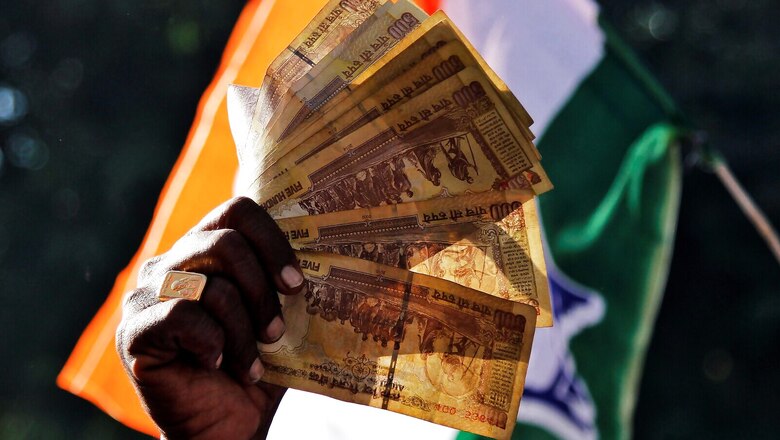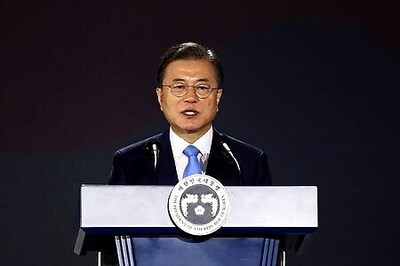
views
The November 8, 2016 notification of the central government demonetising currency notes of Rs 500 and Rs 1,000 denomination was “unlawful”, Justice BV Nagrathna said in her dissenting judgment on Monday even as the Supreme Court upheld the controversial note ban in a 4:1 verdict.
A five-judge Constitution Bench of the Supreme Court, headed by Justice SA Nazeer, said the Centre’s decision-making process could not have been flawed as there was consultation between the Reserve Bank of India (RBI) and the Union government.
The court said the note ban notification cannot be said to be unreasonable and struck down on the ground of decision-making process.
In her dissenting judgment, however, Justice Nagrathna said though the move to scrap the high-value currency notes targeted evils such as terror funding and counterfeiting, the Centre could have effected it via a legislation or an ordinance. She added that there seemed to have been no “independent application of mind by the RBI”.
Here’s a look at the top 10 pointes from Justice Nagrathna’s dissenting judgment on demonetisation:
- “I’ve held that when demonetisation originates from Centre, it is not under Section 26(2) of the RBI but it is to be by way of legislation, and if secrecy is needed, then ordinance is the way to bring it.”
- “Court is not to sit over merit of economic or financial decision… The central government has power to demonetise currency notes, but the same can be done through the way of a legislation or by way of an ordinance”.
- “Parliament can’t be left aloof of such serious decisions. Parliament is a miniature of the country.”
- “There was no time for the RBI to apply its mind as the notification was passed in 24 hours…”
- The proposal to initiate the process of demonetisation was initiated by the Centre. There was no independent application of mind by the RBI.”
- “Initiation of demonetisation by the central government via November 8, 2016 notification was bad in law.”
- “Petitioners say that 86% of the currency in circulation in the country was demonetised. It makes me wonder if the RBI thought about such implications which included socio-economic hardships as well.”
- “The November 8, 2016 notification is unlawful… action of demonetisation is vitiated. Subsequent ordinance of 2016 and Act of 2017 are also unlawful.”
- “Demonetisation targeted evils such as terror funding and counterfeiting. Such a measure targeting deprave practices was well thought-of…”
- “The measure is unlawful purely on legal grounds and not on basis of objects.”
In a Twitter thread on the verdict, senior lawyer and Congress leader P Chidambaram, who appeared for the petitioners, said the dissenting judgment “will rank among the famous dissents recorded in the history of the Hon’ble Supreme Court”.
“We are happy that the minority judgement has pointed out the illegality and the irregularities in the Demonetisation. It may be only a slap on the wrist of the government, but a welcome slap on the wrist,” he said.
Once the Hon'ble Supreme Court has declared the law, we are obliged to accept it.— P. Chidambaram (@PChidambaram_IN) January 2, 2023
“We are happy that the minority judgment has emphasised the important role of Parliament in a democracy… We hope that in future an unbridled Executive will not thrust disastrous decisions on Parliament and the people,” he added.
Read all the Latest India News here




















Comments
0 comment